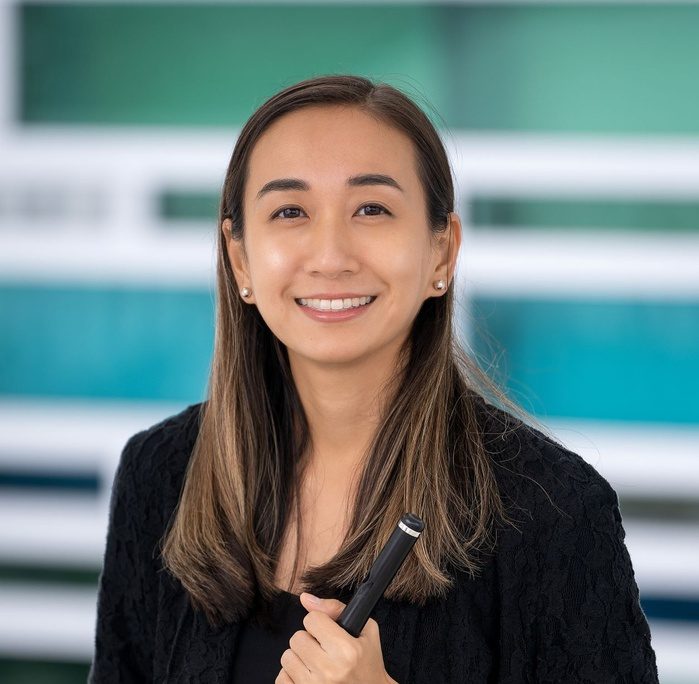Alumni Spotlights – Lily Josefsberg
Lily Josefsberg
(MM ‘17 & GPD ‘18, piccolo)
Orchestral Musician
 Lily Josefsberg was appointed piccolo of the San Diego Symphony in January 2022, having previously held the 3rd flute/piccolo position with the South Dakota Symphony. She has played with the New York Philharmonic, Baltimore Symphony, Kansas City Symphony, Detroit Symphony, Milwaukee Symphony, Florida Grand Opera and Richmond Symphony, among other ensembles.
Lily Josefsberg was appointed piccolo of the San Diego Symphony in January 2022, having previously held the 3rd flute/piccolo position with the South Dakota Symphony. She has played with the New York Philharmonic, Baltimore Symphony, Kansas City Symphony, Detroit Symphony, Milwaukee Symphony, Florida Grand Opera and Richmond Symphony, among other ensembles.
Originally from Ridgewood, New Jersey, Ms. Josefsberg earned her Master’s of Music and Graduate Performance Diploma in piccolo performance from Peabody Conservatory, where she was the teaching assistant and a student of Laurie Sokoloff. Her Bachelors of Music in flute performance is from Boston University, where she studied under Linda Toote and John Heiss. She attended the Aspen Music Festival, serving for three summers as the piccolo fellow under the primary tutelage of Nadine Asin. In 2019 she won the Walfrid Kujala International Piccolo Competition.
Tell us about your journey to your current career path. What were the pivotal moments? What surprised you?
I took 25 orchestral auditions flying all over the country over a span of 5 years to land my current job as piccoloist in the San Diego Symphony. What surprised me most was how arbitrary auditions can be. There are certain practice routines and preparations that many people follow, but on the day of the audition, so many different factors out of your control can lead to the result. Whether it is nerves, travel delays, the people you see at the audition, your mindset etc., those aren’t always things you can prepare for. I remember having such negative feelings anytime I saw someone at the audition I knew was really talented, and that really affected my playing. Of course, at any audition the competition will be high, so the moment I started playing the audition for myself, rather than to beat the other competitors, I started advancing more consistently.
What opportunities did you take advantage of in school that helped you to build helpful skills and experiences?
I said yes to everything. Playing in conductor’s orchestra, premiering and recording composer’s new works, checking out pieces from the library, playing chamber music, running through excerpts for my classmates, studying in some way or form with all 3 flute professors at the time… the list goes on. I felt it was important to have as many different mentors and ideas floating around as possible, so I could make the most informed decision about the choices I wanted to make for my playing. As soon as you’re out of school, no one is giving you any direction besides yourself, so take advantage of the school’s unlimited resources and soak in as much as you can!
How has your network and/or community impacted your professional journey?
Having the support system to keep motivated and positive is so important for mental health! It’s way too hard to be your own practice motivator 100% of the time, so I rely at times on other people to keep me going, especially during Covid. Being able to talk through audition experiences and other musical hardships with friends has helped me gain more understanding of what to expect and how to handle various situations. It’s hard to keep in touch when everyone after school usually moves to different places, but I make a point to try because it’s easy to feel isolated.
What is an obstacle or challenge you’ve faced in your career journey, and how did you overcome it?
Resilience — rejection is hard! Often musicians need validation from their individual practice as motivation to keep working hard. Validation comes in many forms— teachers giving positive feedback, acceptance to a music festival or school, winning a competition, or advancing in an audition. The hardest thing for me was realizing that I could practice and become a better musician than say a few months prior, but still face many rejections in a row. That doesn’t mean I became worse at my instrument by any means, or that I was doing anything wrong. But it’s hard not to think like that. Recording yourself is one way to keep a record of your progress if you aren’t getting enough validation from others. Another way is to listen to musicians that inspire you, and not just from your respective instrument.
Have your goals and priorities changed over time? If so, how?
When Covid hit, I was unemployed and worked as a nanny, in retail, office admin, you name it! I was still practicing, but just for fun. With no deadlines or people to play for, I had to become my own teacher. I started liking music even more because I was able to use what I was taught in school and take some serious time to apply it to how I want to sound. Being able to make those choices for myself was important, and still is, because I never want to copy someone else’s musical ideas or sounds. Before Covid, I was obsessed with trying to win an orchestral audition, and my mental state was all over the place. Some auditions went well, and others I totally bombed. What changed during Covid was that I no longer felt that urgency to “win”— my only goal was to show the committee how much I love playing the piccolo.
Hear more from Lily Josefsberg here in her Max Q podcast episode!